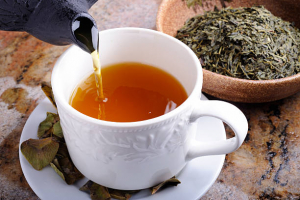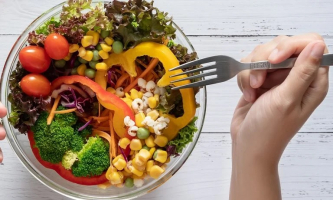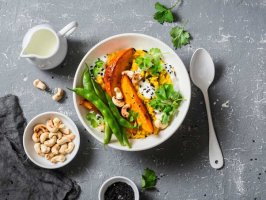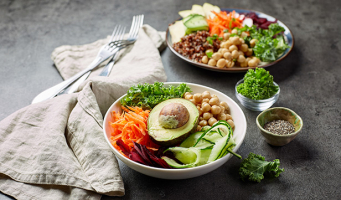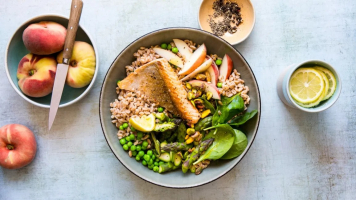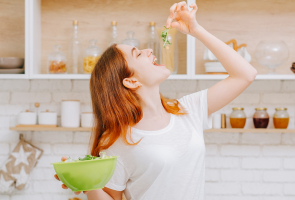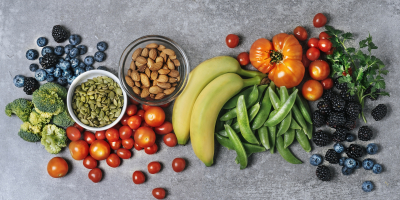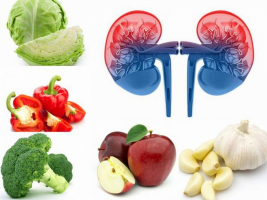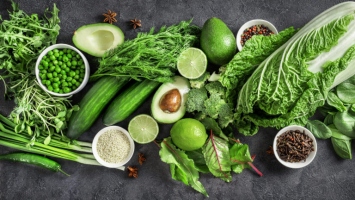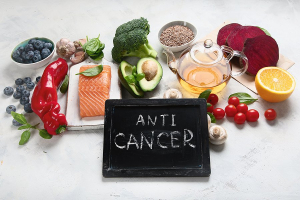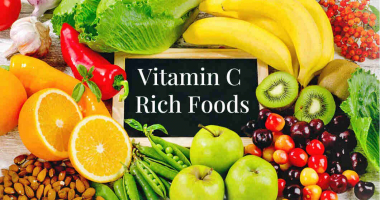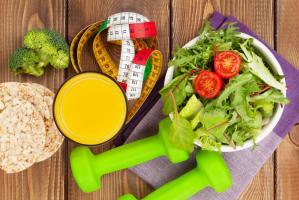Top 10 Best Foods for an Upset Stomach
Almost everyone suffers a stomach ache now and again. Nausea, indigestion, vomiting, bloating, diarrhea, and constipation are all common symptoms. An upset ... read more...stomach can have a number of causes, and treatments vary depending on the underlying cause. Fortunately, a variety of foods might help you feel better sooner by calming an upset stomach. Some of the best foods for an upset stomach are listed below!
-
The symptoms of an upset stomach include nausea and vomiting. Both of these symptoms are typically treated with ginger, a fragrant edible root with bright yellow flesh. Ginger is effective in all forms, whether eaten raw, cooked, steeped in hot water, or taken as a supplement.
Morning sickness, a kind of nausea and vomiting that can occur during pregnancy, is commonly treated with it. Taking 1 gram of ginger daily was linked to 5 times reduced nausea and vomiting during pregnancy, according to a study of six research involving over 500 pregnant women. People who are having chemotherapy or major surgery may benefit from ginger, as these treatments can cause extreme nausea and vomiting. Prior to chemo or surgery, taking 1 gram of ginger daily can dramatically minimize the severity of these symptoms. Ginger may also be used as a natural motion sickness remedy. It can help minimize the intensity of nausea symptoms and the time it takes to recover if taken ahead of time.
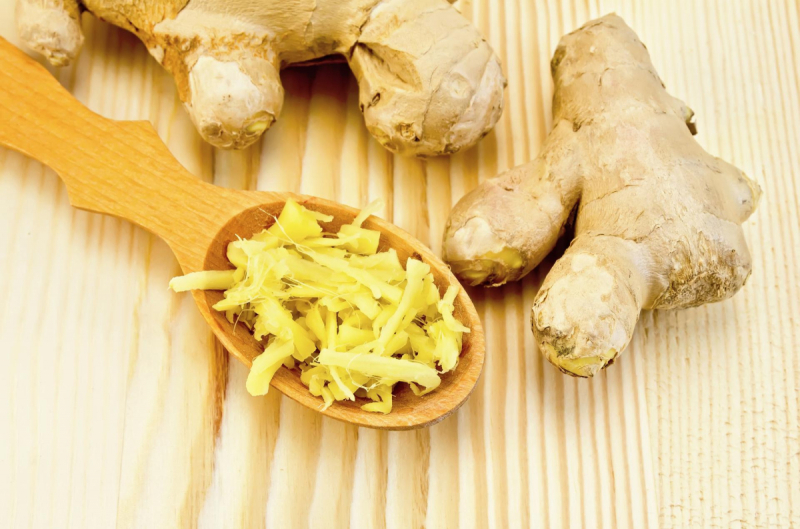
Ginger 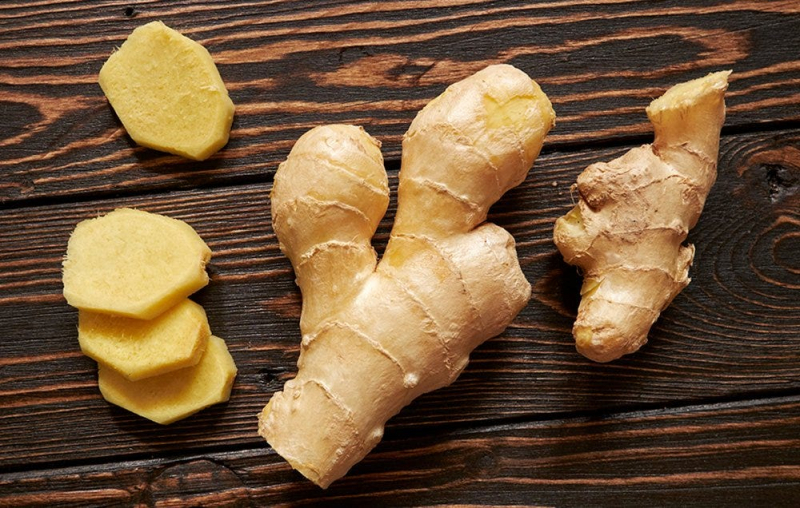
Ginger -
Chamomile is a traditional remedy for upset stomachs. It is a herbal plant with small white flowers. Chamomile can be dried and used as a tea or taken as a supplement. Chamomile has long been used to treat gas, indigestion, diarrhea, nausea, and vomiting, among other digestive issues.
Despite its widespread use, just a few studies back up its effectiveness in treating digestive issues. Chamomile supplements were found to lower the intensity of vomiting after chemotherapy treatments in one small trial, but it's unclear if they'd have the same effect on other types of vomiting. Chamomile extracts were shown to reduce diarrhea in mice by reducing intestinal spasms and lowering the amount of water secreted into the stool in an animal study, but additional research is needed to see if this holds true in humans.
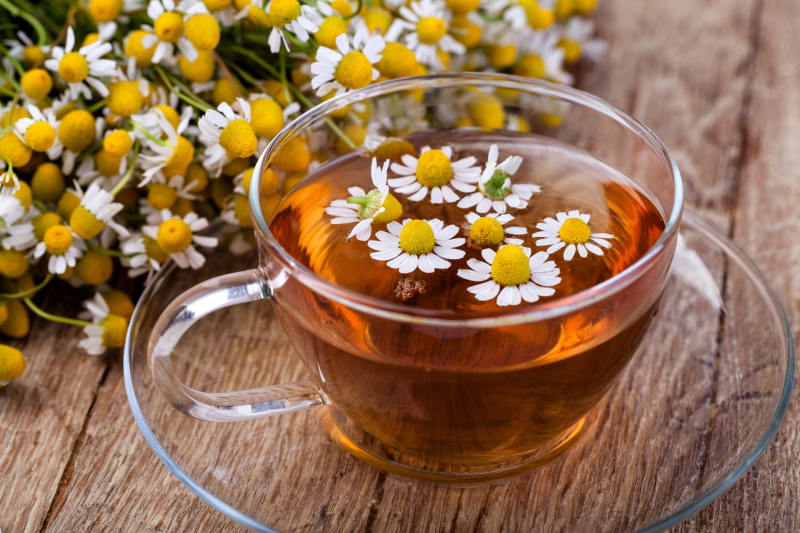
Chamomile 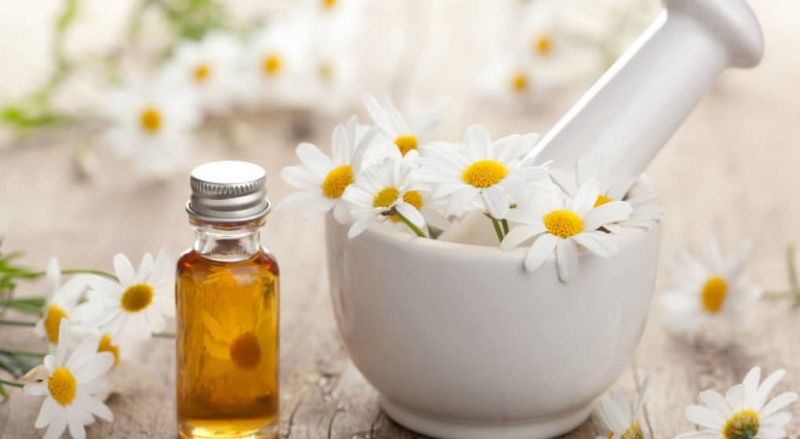
Chamomile -
Irritable bowel syndrome, or IBS, is the cause of upset stomach in some people. Irritable bowel syndrome (IBS) is a chronic gut disorder that causes stomach pain, bloating, constipation, and diarrhea. While IBS can be difficult to manage, research suggests that peppermint might help relieve some of the unpleasant symptoms.
Adults with IBS can reduce stomach pain, gas, and diarrhea by taking peppermint oil capsules daily for at least two weeks. Peppermint oil is thought to work by relaxing digestive tract muscles, lowering the intensity of intestinal spasms that can cause discomfort and diarrhea. While the research is promising, more research is needed to see if peppermint leaf or peppermint tea have the same therapeutic effects. Peppermint is generally safe, although it should be avoided by persons who have severe reflux, hiatal hernias, kidney stones, or liver or gallbladder disorders, as it may worsen these conditions.
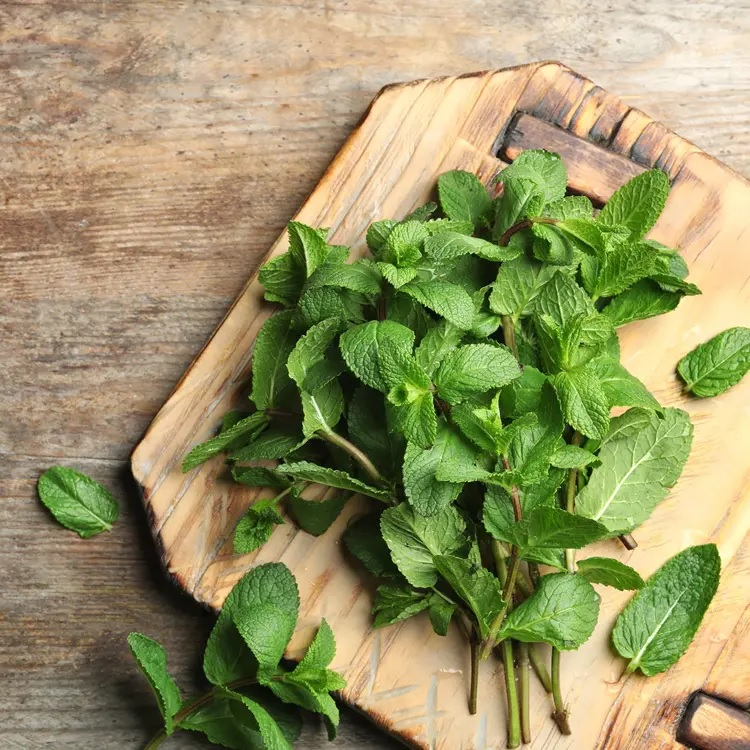
Peppermint 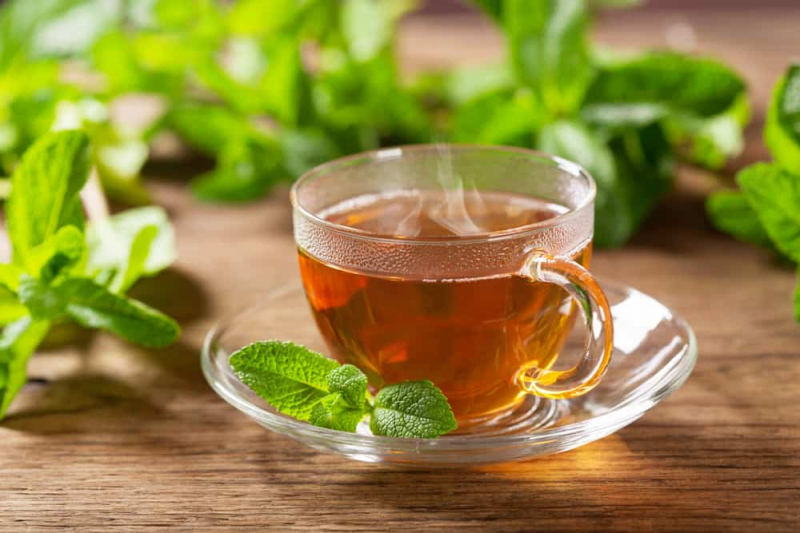
Peppermint -
Licorice is a common indigestion remedy that may also help to avoid unpleasant stomach ulcers. Licorice root was traditionally eaten whole. It's now most commonly eaten as a supplement known as deglycyrrhizinated licorice (DGL). DGL is recommended over regular licorice root because it does not include glycyrrhizin, a naturally occurring chemical in licorice that, when ingested in excessive amounts, can cause fluid imbalances, and high blood pressure, and low potassium levels.
Animal and test-tube studies show that DGL relieves stomach pain and discomfort by decreasing stomach lining inflammation and boosting mucus production to protect tissues from stomach acid. This might be especially beneficial for people who have an upset stomach as a result of too much stomach acid or acid reflux. DGL supplements may also aid in the relief of stomach ulcers caused by an overgrowth of the bacterium H. pylori. DGL supplements have been found in several trials to decrease H. pylori overgrowth, lower symptoms and even boost stomach ulcer healing.
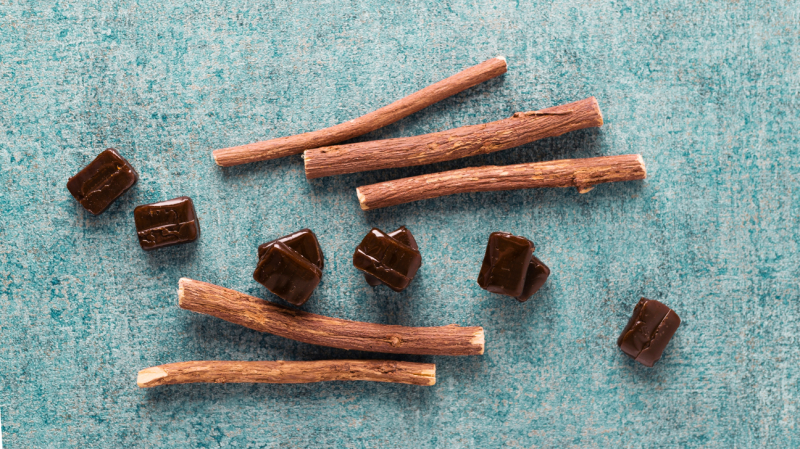
Licorice 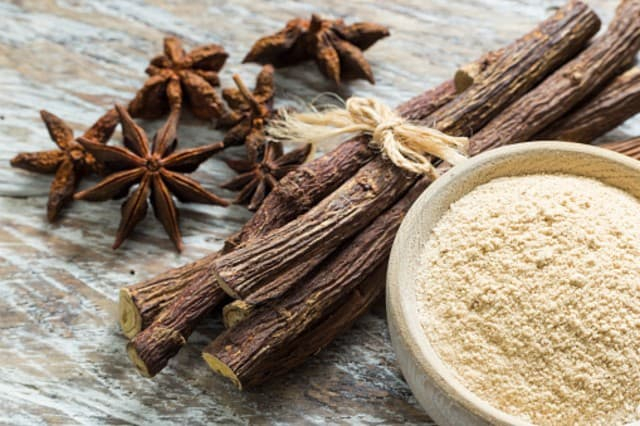
Licorice -
Flaxseed, commonly known as linseed, is a small, fibrous seed that can help with bowel movements, constipation, and upset stomach. Constipation is described as having less than three bowel movements per week, and it is commonly accompanied by stomach pain and discomfort.
Flaxseed, in the shape of ground flaxseed meal or flaxseed oil, has been demonstrated to help reduce constipation symptoms. Constipated people who took one ounce (4 ml) of flaxseed oil per day for two weeks had more bowel movements and improved stool consistency. Another study discovered that those who ate flaxseed muffins every day had 30% more bowel movements per week than those who did not eat flaxseed muffins. Additional flaxseed benefits have been discovered in animal studies, including the prevention of stomach ulcers and the reduction of intestinal spasms, although these effects have yet to be replicated in humans
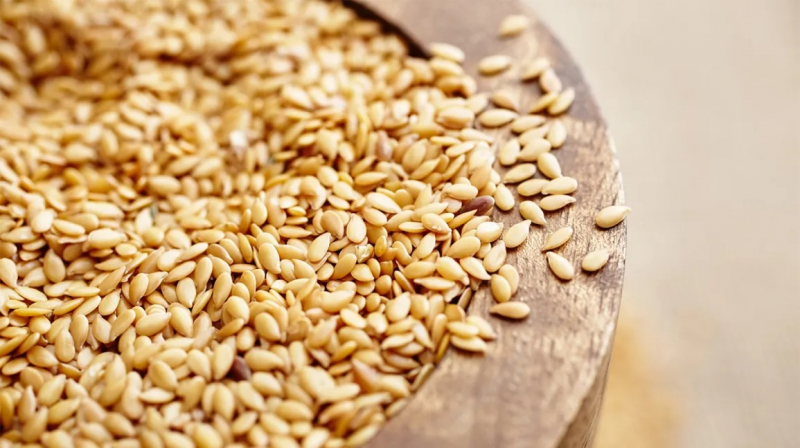
Flaxseed 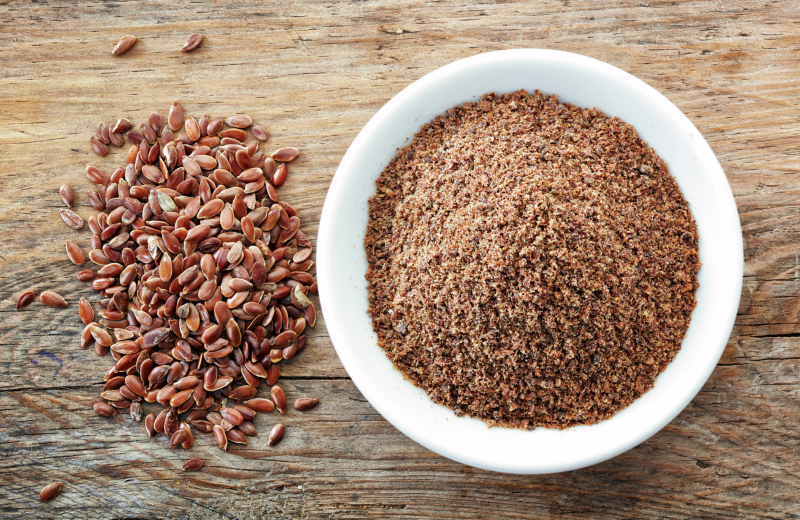
Flaxseed -
Papaya, commonly known as pawpaw, is a delicious tropical fruit with bright orange flesh that is sometimes used as a natural indigestion remedy. Papaya includes papain, a strong enzyme that helps you digest and absorb proteins in the food.
Because some people don't produce enough natural enzymes to fully digest their meals, using extra enzymes like papain might help them feel better. Although there hasn't been much research on papain's benefits, at least one study revealed that eating papaya concentrate consistently improved constipation and bloating in adults. Finally, papaya seeds have been used to treat intestinal parasites that can cause severe stomach pain and malnutrition when they live in the gut. Several studies have revealed that the seeds have antiparasitic properties and can increase the number of parasites passed into the stools of children.
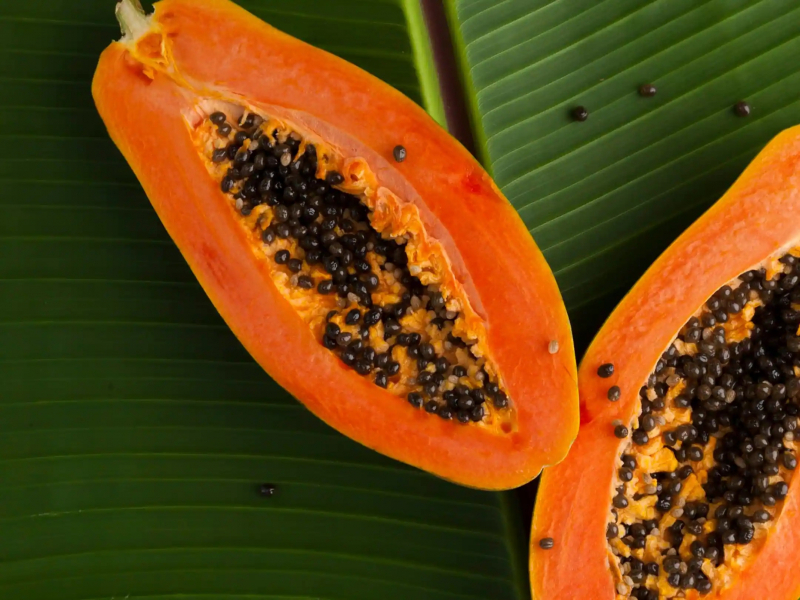
Papaya 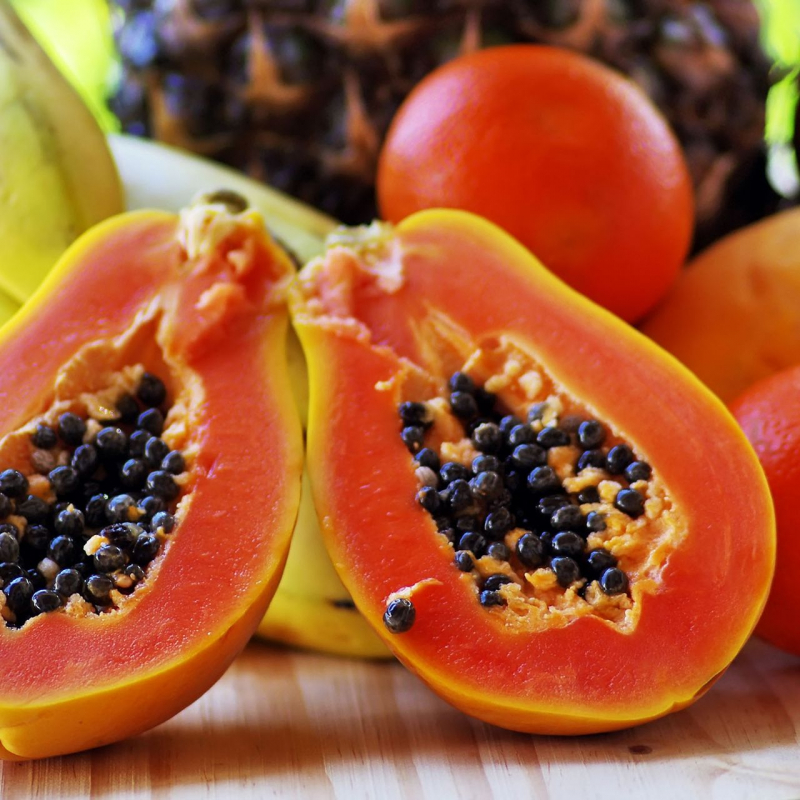
Papaya -
Diarrhea is frequently associated with an upset stomach caused by an infection or food poisoning. Interestingly, giving cooked, green bananas to children with diarrhea has been shown in multiple trials to help reduce the number, severity, and duration of episodes.
In fact, one research revealed that adding cooked green bananas to a diet nearly quadrupled the effectiveness of eliminating diarrhea. Green bananas have strong antidiarrheal properties due to a type of fiber called resistant starch that they possess. Humans cannot digest resistant starch, thus it passes through the digestive tract and into the colon, the last section of the intestines. Once in the colon, your gut bacteria slowly ferment it to produce short-chain fatty acids, which encourage your intestines to absorb more water and firm up your stools. While these results are promising, additional research is needed to determine whether green bananas have the same antidiarrheal properties in adults.
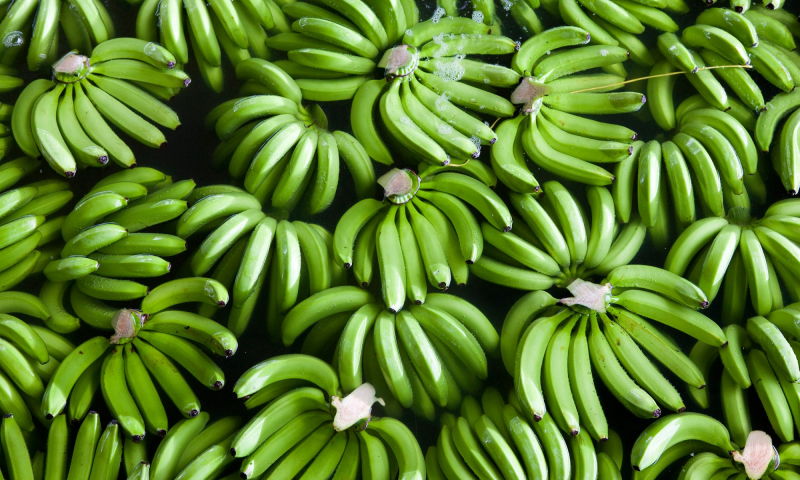
Green Banana 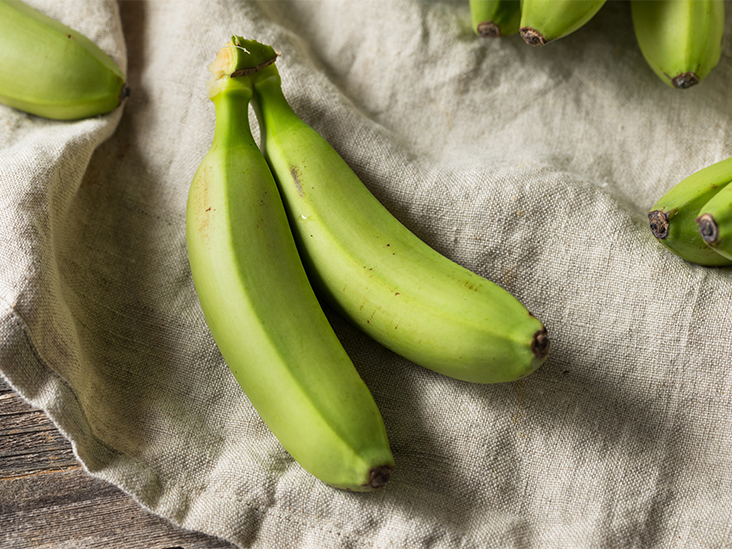
Green Banana -
Pectin supplements can help in the recovery of diarrhea caused by a stomach bug or a foodborne illness. Apples and citrus fruits contain a lot of pectins, which is a type of plant fiber. It's frequently extracted from these fruits and sold as a separate food or supplement. Because pectin is not digested by humans, it remains in the intestinal tract, where it helps to firm stools and prevent diarrhea.
According to one research, 82% of sick children who took daily pectin supplements recovered from diarrhea within four days, compared to only 23% of children who did not take pectin supplements. Pectin also helps to reduce stomach upset by encouraging the growth of beneficial bacteria in the digestive tract. An imbalance of bacteria in the intestines can cause painful symptoms such as gas, bloating, and abdominal pain. By encouraging the growth of healthy bacteria while decreasing the growth of harmful bacteria, pectin supplements can help rebalance the gut and relieve these symptoms.
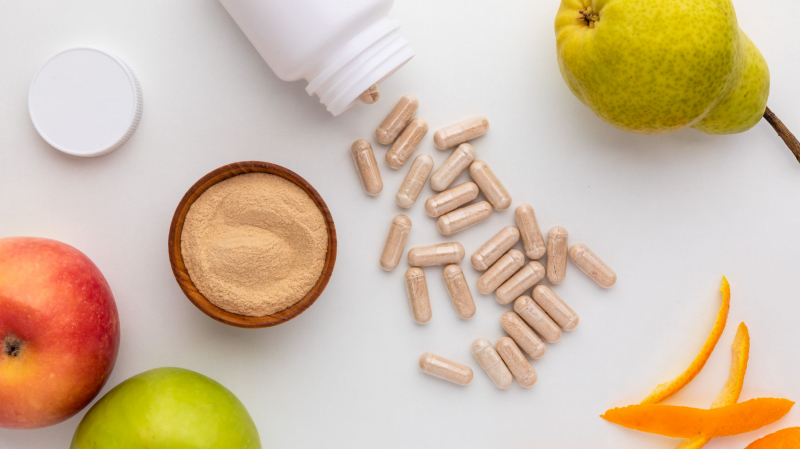
Pectin supplements 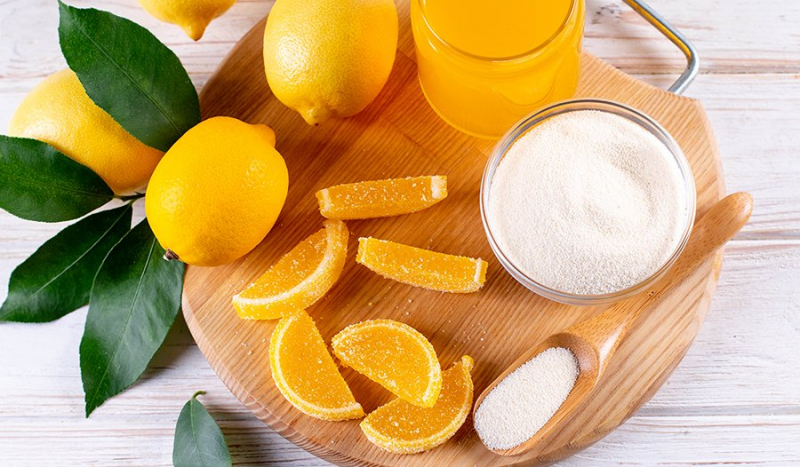
Pectin supplements -
FODMAPs (fermentable oligosaccharides, disaccharides, monosaccharides, and polyols) are carbohydrates that some people have difficulty digesting. When undigested FODMAPs enter the colon, gut bacteria quickly ferment them, causing excessive gas and bloating. They also attract water, causing diarrhea.
Many people with digestive issues, particularly those who suffer from IBS, find that avoiding foods rich in FODMAPs relieves their gas, bloating, and diarrhea. Low-FODMAP diets reduced these symptoms in 50–80% of persons with IBS, according to a review of ten randomized trials. While not everyone with digestive disorders has trouble digesting FODMAPs, consulting a dietitian can help you figure out if any of them are bothering you.
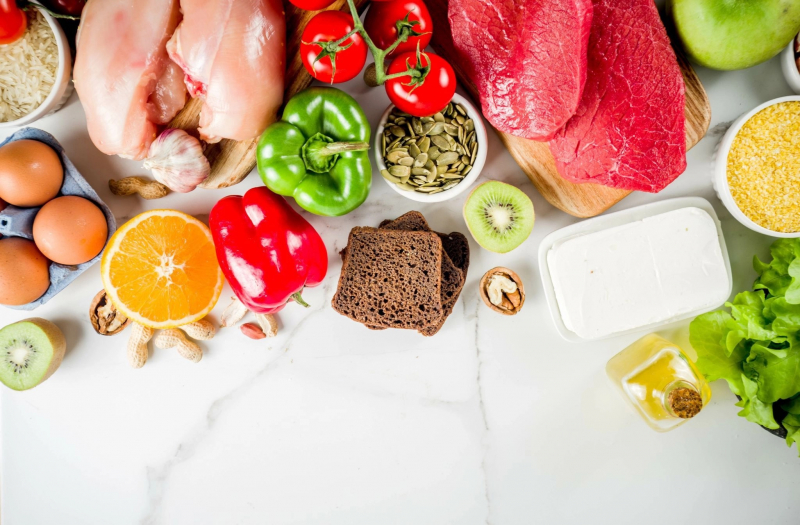
Low-FODMAP Foods 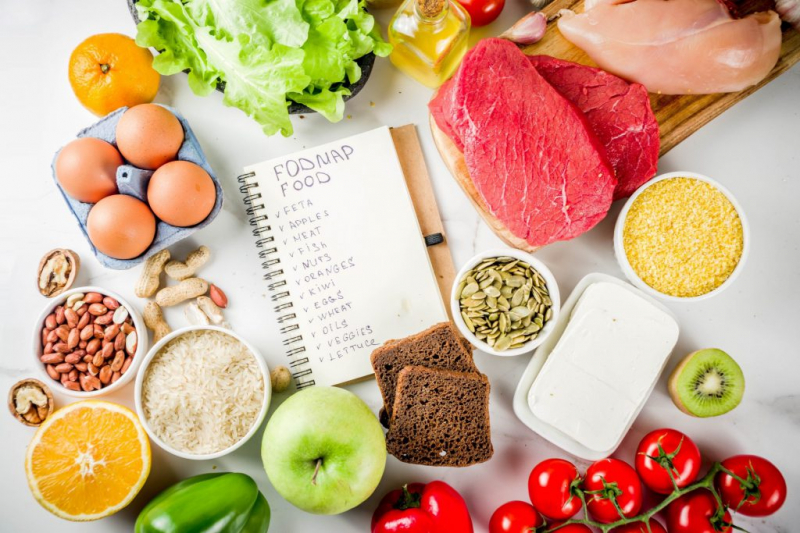
Low-FODMAP Foods -
Dysbiosis, or an imbalance in the type or number of bacteria in your gut, can sometimes cause an upset stomach. Eating foods high in probiotics, or gut-friendly bacteria, can help correct this imbalance and relieve symptoms like gas, bloating, and irregular bowel movements.
Probiotic-rich foods that are beneficial to gut health include: Yogurt, eating yogurt with live, active bacterial cultures has been found in several trials to help with constipation and diarrhea; Buttermilk: Buttermilk can aid with diarrhea caused by antibiotics and may also reduce constipation and Kefir, drinking 2 cups (500 ml) of kefir every day for a month will help people with chronic constipation have more regular bowel movements. Miso, natto, tempeh, sauerkraut, kimchi, and kombucha are other probiotic-rich foods.
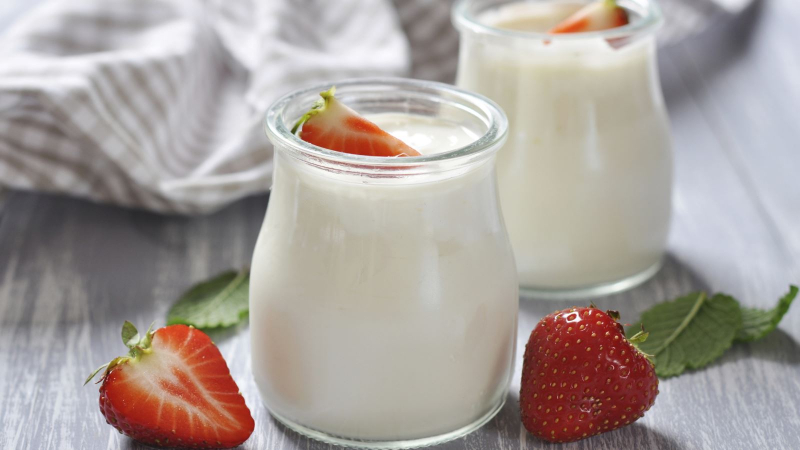
Probiotic-Rich Foods 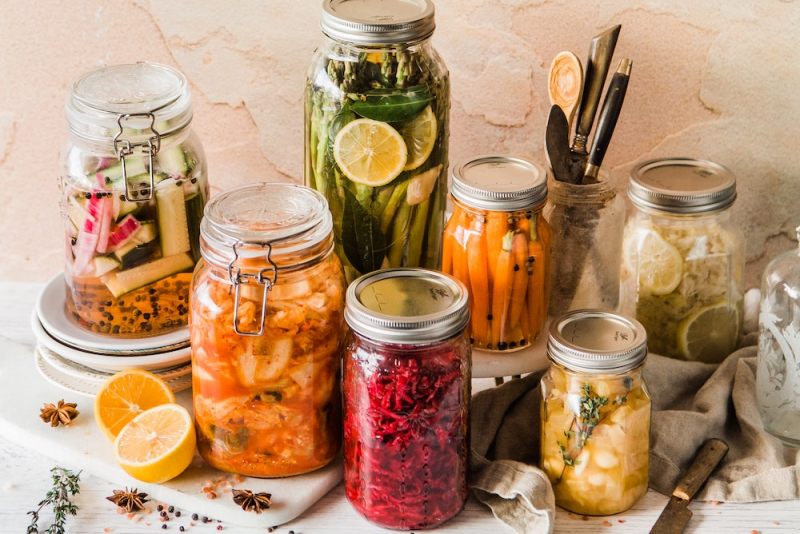
Probiotic-Rich Foods












